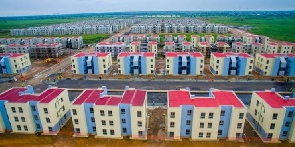Galamsey, an illegal and destructive practice of small-scale gold mining, has plagued Ghana for years. It involves the use of rudimentary tools to extract minerals from sensitive ecosystems, leading to severe environmental degradation, water pollution, and social conflict. The term "galamsey" originates from the involvement of foreign miners in this activity.
In recent times, there has been a surge of public protests against galamsey, with politicians, civil society organizations, and ordinary citizens taking a stand. While these demonstrations demonstrate a strong sense of civic engagement, a purely confrontational approach may not be sufficient to address this complex issue.
Addressing societal problems often requires a multifaceted strategy that combines both hard-line policies and softer, more nuanced approaches. For instance, the successful implementation of policies such as the Girl Child Policy and public health campaigns against smoking in Ghana underscores the importance of a comprehensive and tailored approach.
The Power of Positive Action:
Instead of focusing on the problem, a more effective approach might be to shift the focus towards positive solutions. This could involve:
1. Education and Awareness: Promoting education and awareness about the harmful effects of galamsey, emphasizing the importance of sustainable practices and the long-term consequences of environmental degradation.
2. Environmental Advocacy: Supporting environmental organizations and initiatives that work to protect Ghana's natural resources and promote sustainable development.
3. Alternative Livelihoods: Promoting alternative livelihood options for those involved in galamsey, such as agriculture, aquaculture, or ecotourism. 4. Community Engagement: Encouraging community involvement in environmental protection and conservation efforts, empowering local people to take ownership of their natural resources.
The Role of Civil Society, Celebrities, and Politicians:
These groups can play a crucial role in driving positive change by:
• Leading by Example: Demonstrating a commitment to environmental sustainability through their own actions and choices.
• Advocating for Policy Changes: Lobbying for government policies that support sustainable development and discourage illegal mining practices.
• Raising Awareness: Using their platforms to educate the public about the importance of environmental protection and the negative consequences of galamsey.
• Supporting Community Initiatives: Partnering with local communities to develop sustainable projects and alternatives to illegal mining.
By focusing on positive solutions and empowering communities, civil society, celebrities, and politicians can help to address the challenges of galamsey and create a more sustainable future for Ghana
Positive Aspects of Galamsey
1. Economic Opportunities: Galamsey provides economic opportunities for many Ghanaians, especially in rural areas, who may not have access to other employment options.
2. Source of Income: For many individuals, galamsey is a primary source of income, allowing them to meet their basic needs and support their families. Top 10 Arguments Against Galamsey in Ghana
1. Environmental Degradation: Galamsey operations often involve the use of harmful chemicals like mercury and cyanide to extract gold, which contaminates water bodies, soil, and air. This pollution poses serious health risks to both humans and wildlife.
2. Deforestation: Illegal mining activities often lead to widespread deforestation, destroying valuable ecosystems and contributing to climate change.
3. Loss of Agricultural Land: Galamsey encroaches on fertile agricultural land, reducing food production and harming food security.
4. Water Pollution: The use of chemicals and the destruction of water bodies lead to severe water pollution, making it unsafe for consumption, agriculture, and domestic use.
5. Public Health Risks: Exposure to contaminated water and air can lead to various health problems, including skin diseases, respiratory issues, and cancer.
6. Erosion and Sedimentation: Galamsey operations can cause erosion and sedimentation, leading to silting up of rivers and waterways, affecting transportation and hydropower generation.
7. Loss of Biodiversity: Deforestation and habitat destruction caused by galamsey contribute to the loss of biodiversity, threatening species extinction. 8. Conflict and Violence: Galamsey often leads to conflicts between mining communities, landowners, and government agencies, sometimes resulting in violence.
9. Corruption: The illegal nature of galamsey often involves corruption, with government officials and politicians benefiting from the illicit activities.
10. Negative Impact on Tourism: Environmental degradation and security concerns associated with galamsey can deter tourists, negatively impacting Ghana's tourism industry. Government Policies to Address Galamsey
1. Strict Enforcement of Laws: The government should strengthen enforcement of existing laws against illegal mining, imposing hefty penalties on offenders.
2. Community Involvement: Encourage community participation in anti-galamsey efforts, empowering local people to report illegal activities and protect their environment.
3. Alternative Livelihoods: Provide alternative livelihood options for those involved in galamsey, such as agriculture, aquaculture, or ecotourism.
4. Reforestation Programs: Implement large-scale reforestation programs to restore degraded ecosystems and mitigate the effects of deforestation.
5. Technology Adoption: Promote the use of environmentally friendly mining technologies that reduce the negative impacts of galamsey.
6. Transparency and Accountability: Increase transparency in the mining sector, ensuring that government officials and companies are accountable for their actions.
7. International Cooperation: Collaborate with international organizations and other countries to address the global challenges of illegal mining.
8. Education and Awareness: Raise awareness about the negative consequences of galamsey through education campaigns and public outreach programs.
9. Support for Small-Scale Mining: Promote responsible and sustainable small-scale mining practices, providing training and support to miners. 10. Land Use Planning: Implement effective land use planning to prevent encroachment on protected areas and ensure that mining activities are conducted in designated zones.
Opinions of Tuesday, 8 October 2024
Columnist: Amanda Akuokor Clinton Esq.



















